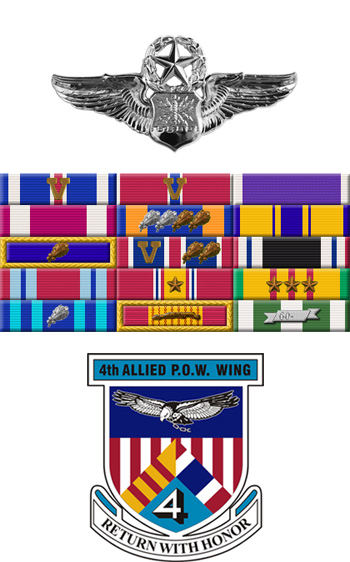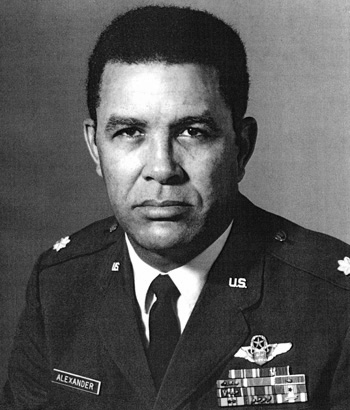
|
Fernando "Alex" Alexander |
 |
|||
| Rank, Service | ||||
Lieutenant Colonel O-5, U.S. Air Force |
||||
| Veteran of: | ||||
|
||||
| Tribute: | ||||
Fernando Alexander was born on March 8, 1929, in Dallas, Texas. He enlisted in the U.S. Air Force on May 28, 1952, and entered the Aviation Cadet Program on July 13, 1952, receiving his commission as a 2d Lt and awarded a rating as an aircraft radar operator on July 13, 1953. After completing B-29 Superfortress Combat Crew Training, he served as a KB-29 radar operator with the 321st Strategic Reconnaissance Squadron of the 90th Strategic Bomb Wing at Forbes AFB, Kansas, from November 1953 to July 1954, followed by Navigator Bombardier training at Mather AFB, California, from July 1954 to February 1955. His next assignment was as a B-47 Stratojet Navigator with the 368th Bomb Squadron at MacDill AFB, Florida, from March 1955 to August 1959, followed by B-52 Stratofortress Combat Crew Training. Capt Alexander served as a B-52 Navigator with the 70th Bomb Squadron at Loring AFB, Maine, from December 1959 to July 1961, and then with the 69th Bomb Squadron, also at Loring, from July 1961 to June 1965. He then served as a B-52 Navigator with the 60th Bomb Squadron and the 72nd Bomb Wing at Ramey AFB, Puerto Rico, from June 1965 to July 1968, and then with the 346th Bomb Squadron at Westover AFB, Massachusetts, from July 1968 until he was forced to eject over North Vietnam and was taken as a Prisoner of War on December 19, 1972. During his time with the 346th Bomb Squadron, Maj Alexander deployed to Southeast Asia four times between September 1968 and December 1972. After spending 101 days in captivity, he was released during Operation Homecoming on March 29, 1973. Col Alexander served at McClellan AFB, California, before serving as commander of the Air Force ROTC program at Fayetteville State University in Fayetteville, North Carolina, from September 1977 until his retirement from the Air Force on October 1, 1979. Fernando Alexander died on April 16, 2020, and was buried at Mount Vernon Memorial Park in Fair Oaks, California. |
||||
|
||||

